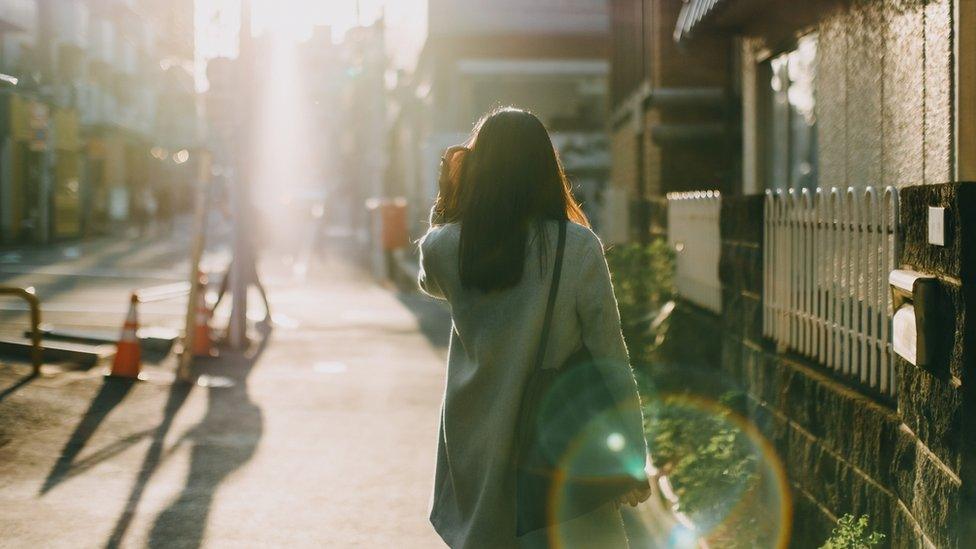Domestic abuse: The 'forgotten' victims failed by the system
- Published
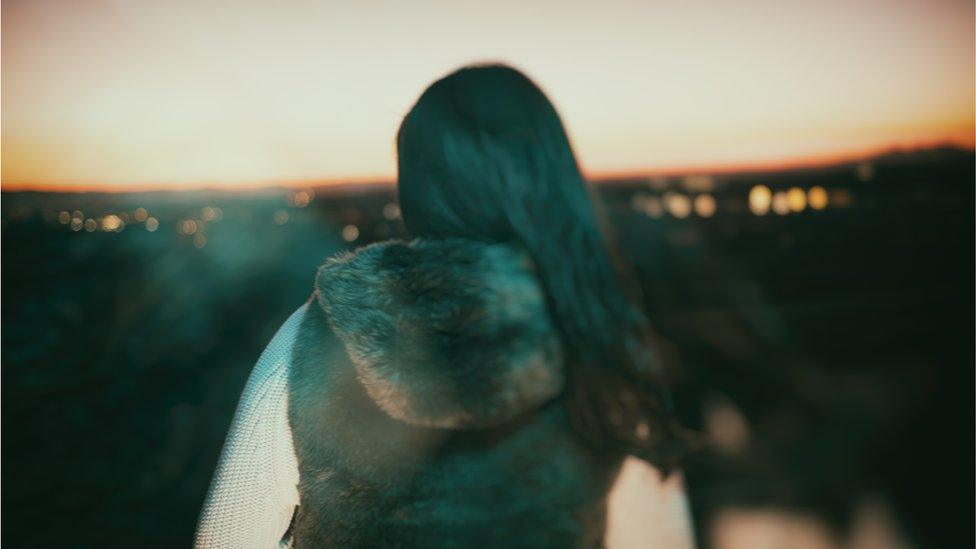
Many women arrive in the UK in a happy relationship and the legal right to live with their partner. But some of those relationships break down and turn into a life of physical and sexual abuse.
For those with an insecure immigration status, it can be difficult to escape, with very few legal rights and limited access to help. One charity is calling for better support for these "forgotten" victims of domestic abuse.

Clara - not her real name - first arrived in London to join her long-term boyfriend. She says they had a great life together. But when she found out she was pregnant, everything changed.
"He started becoming physical and he would blackmail me into things I didn't want to do by saying he would kick me out of the house if I didn't," she says. "I remember I had to beg him for food."
After months of physical and sexual abuse, Clara tried to leave. But with very few legal rights in the UK she found there was little help available.
She said: "I had no-one. I had no choice. I had to go back to my ex."
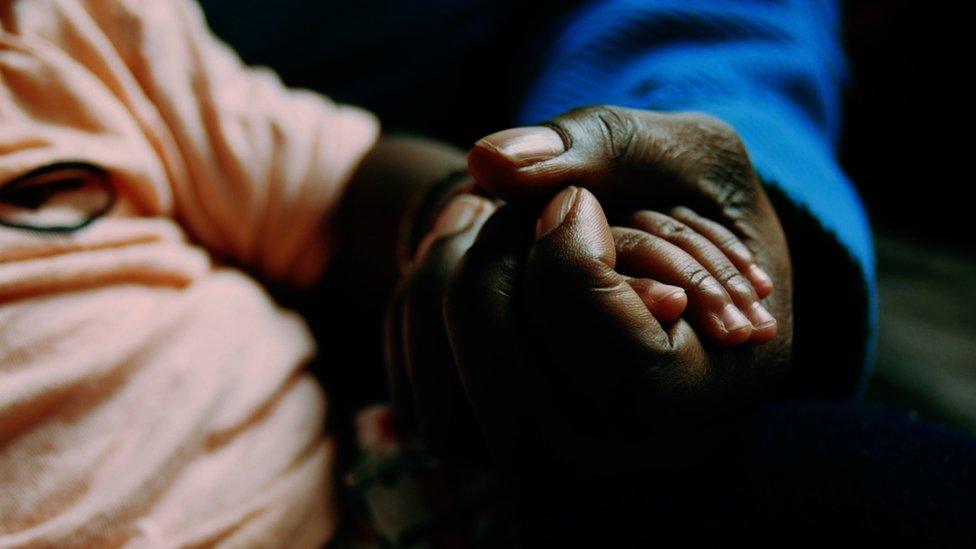
Immigrants who are not married to British citizens are subject to the No Recourse to Public Funds (NRPF) rule, which states they cannot access most forms of welfare benefits and social housing.
The not-for-profit organisation Southall Black Sisters, based in London, is running a pilot scheme with the Home Office to help NRPF women who have suffered domestic abuse.
For those taking part in the scheme, the government pays about £35 a night for accommodation in London and gives the women £50 a week for everything else. If they have a child they receive an additional £10 a week.
Rahila Gupta, interim director of the voluntary organisation, says the money is not enough and leaves migrant women and their children "starving".
She said: "The kind of utter poverty that these women have been reduced to is what we have been campaigning against all these years. There is a second-class treatment of migrant women who are just forgotten."
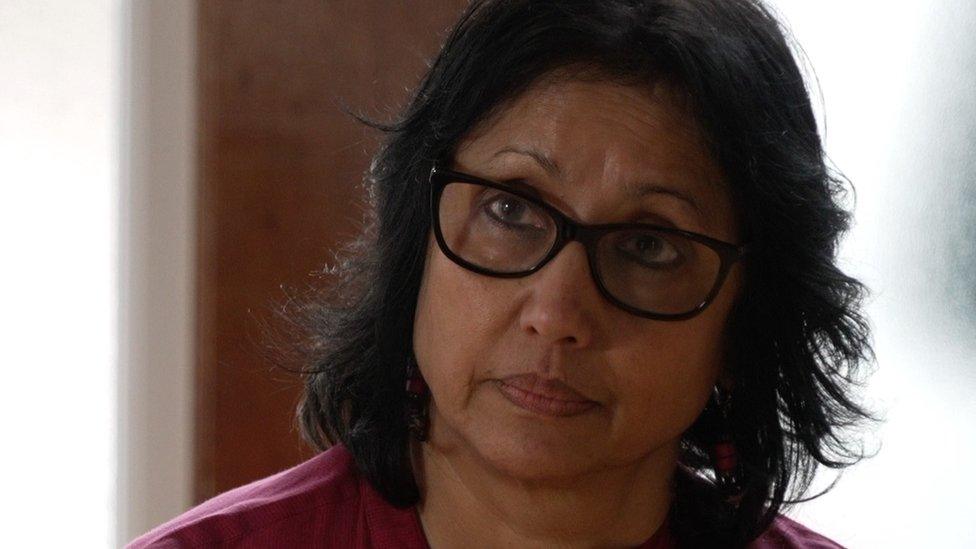
Victims of domestic violence have themselves been arrested and put into detention centres, Rahila Gupta says
Unlike with other victims of abuse, there is often no "wraparound" support for NRPF women to help them, such as counselling or legal aid.
The not-for-profit organisation believes the lack of support forces women to stay in abusive relationships. It also says victims do not report the abuse to the police because of the fear of being taken to immigration centres.
"We have witnessed police turning up to a report of domestic abuse and instead of paying attention to protecting the woman, they might want to see what her immigration status," said Ms Gupta.
"We have had women, victims of domestic violence, arrested themselves and put into detention centres. There should be a firewall for all victims of abuse."
The organisation has accused the government of "dragging its feet" when it comes to supporting migrant women by carrying out pilots. It says the evidence of what these women need has already been provided.
Southall Black Sisters believes the future of this group of women is uncertain because the government pilot offering support is due to end this month.
In a statement, the Home Office said: "The government is committed to supporting all victims of domestic abuse, regardless of their immigration status.
"The Support for Migrant Victims Scheme pilot provides accommodation and wraparound support for migrant victims of domestic abuse, so no-one has to choose between staying with an abuser or becoming destitute.
"We have worked closely with Southall Black Sisters to ensure the pilot assesses gaps in provision while providing immediate support."

Information and support on domestic abuse
If you're affected by any of the issues in this article you can find details of organisations who can help via the BBC Action Line.
If you feel you are in immediate danger, call the police on 999. If you can't speak, press 55 when prompted to let them know you need urgent help.
Online webchats and text services are also available.

Follow BBC London on Facebook, external, Twitter , externaland Instagram, external. Send your story ideas to hellobbclondon@bbc.co.uk, external
Related topics
- Published23 September 2020
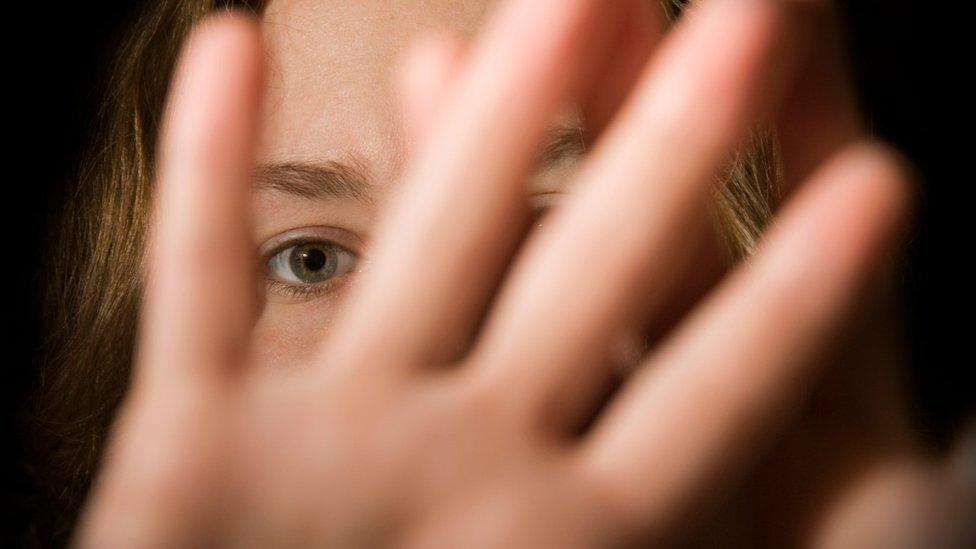
- Published18 January 2022
